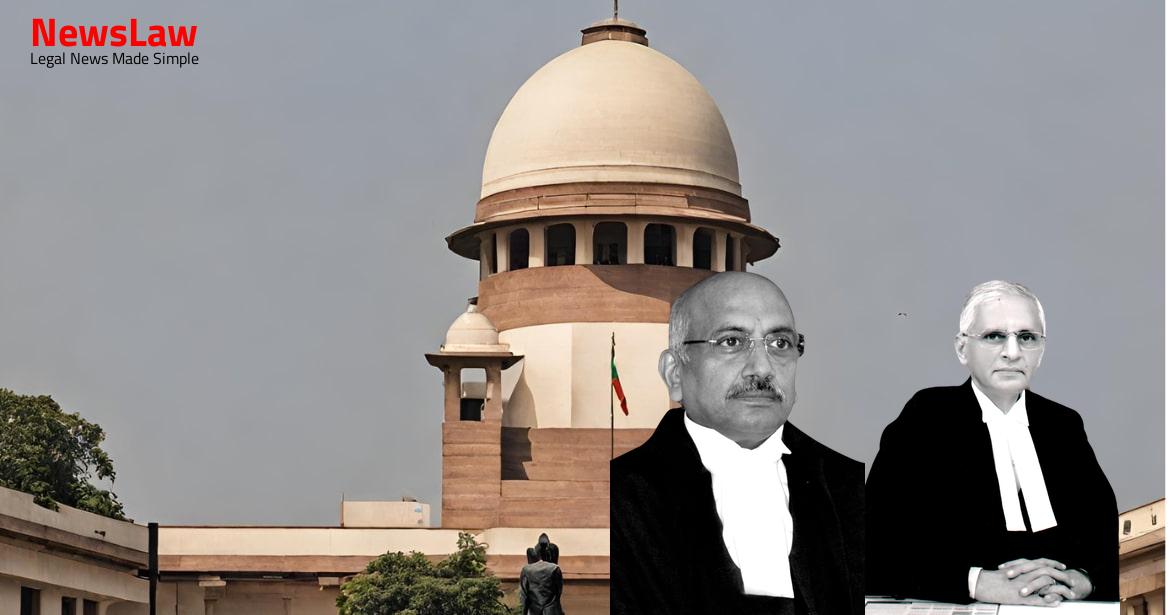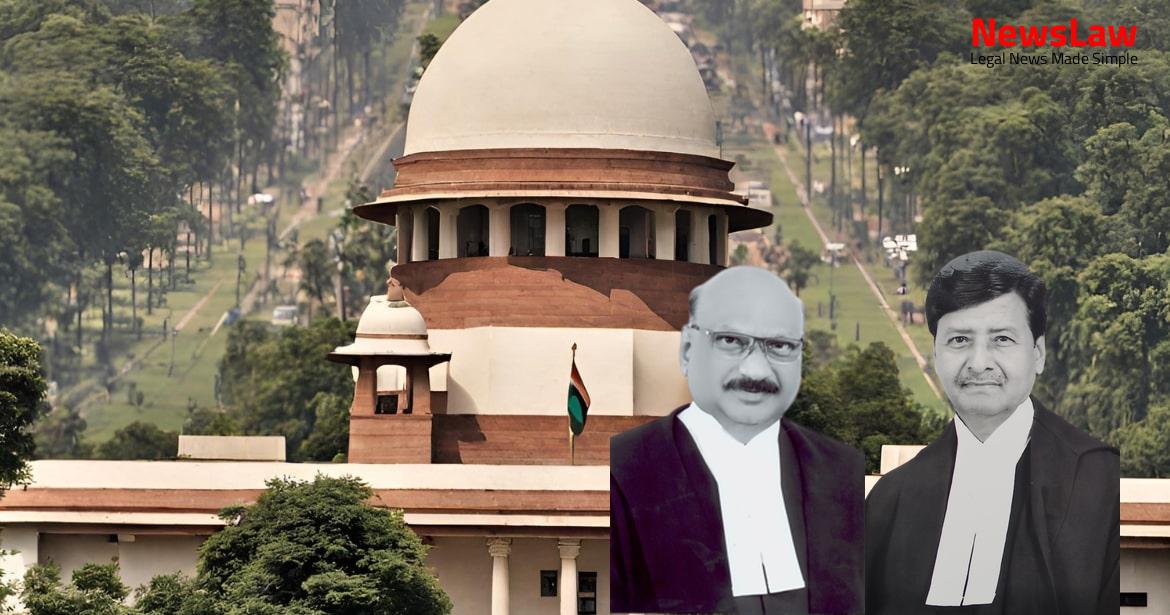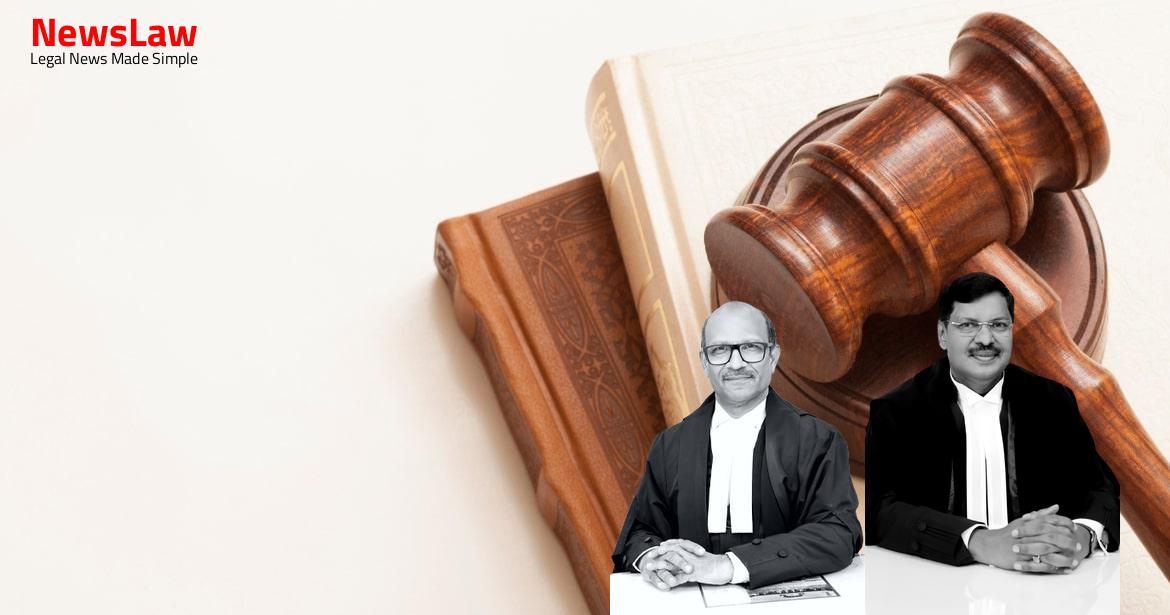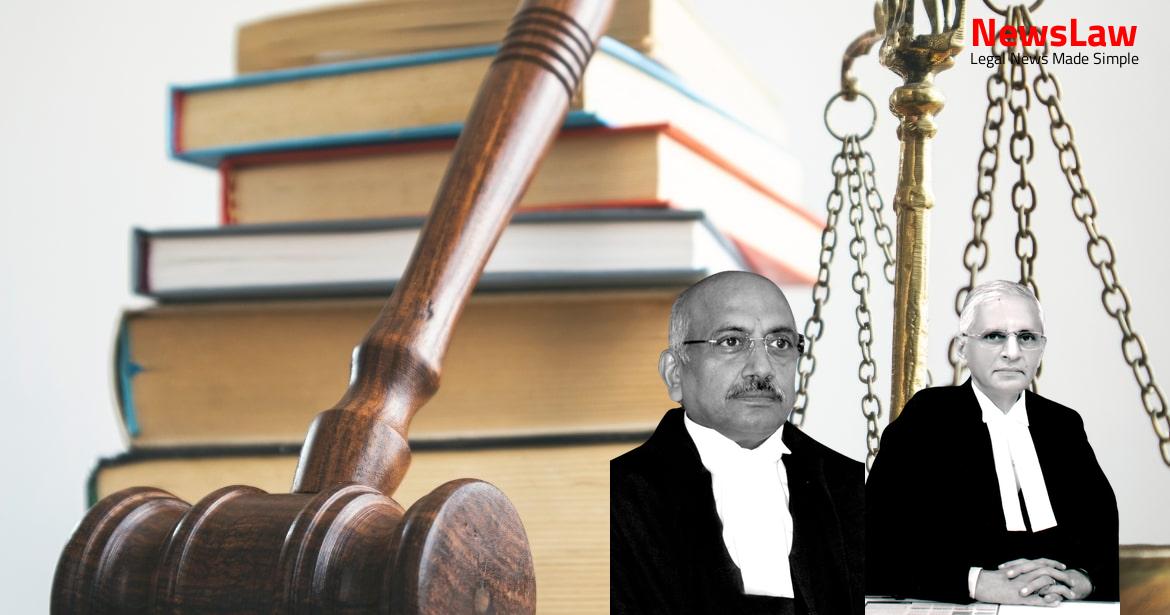Delve into the detailed legal analysis conducted by the court regarding the necessity of impleading parties in a foreclosure suit. The case highlights the significance of impleading subsequent purchasers in such proceedings to protect property rights. The court’s analysis focuses on the statutory and legal aspects, emphasizing the importance of adherence to legal procedures in matters concerning property rights.
Facts
- Plaintiff filed Regular Civil Suit No 7 of 1984 seeking redemption of mortgaged property.
- Mortgagee took possession from plaintiff on 5.12.1980.
- Plaintiff filed application for stay on execution of decree.
- Original mortgagee filed Regular Civil Suit No. 237 of 1965 for recovery of mortgage amount against original mortgagors.
- Plaintiff was not impleaded in the suit, even though sale in his favor was before the filing of the suit.
- Plaintiff purchased the property and not the equity of redemption.
- Preliminary decree was converted into final decree foreclosing the rights of mortgagor to redeem the property.
- Application for stay of execution was dismissed, and the appeal against it was also dismissed.
- Plaintiff is considered a mortgagor under Section 59A of the Transfer of Property Act, 1882.
- Brief facts include ownership of land by defendant Nos. 1 and 2 in Village Veni, Taluka Lonar.
- The First Appellate Court found that the plaintiff was in possession of the suit land after the sale deed in his favor in 1964
- The plaintiff should have been made a party in accordance with Sections 59A and 91 of the Act, as he purchased the land before the suit was filed
- Decree of foreclosure was set aside by the High Court due to the plaintiff’s pre-existing ownership
- The High Court determined that the plaintiff’s suit for redemption was not maintainable
- Partial redemption is permissible only if the equity of redemption is purchased
- The right of redemption and foreclosure are coextensive, leading to the extinguishing of the right to redeem upon a foreclosure decree
- The Trial Court acknowledged the suit was within the 30-year redemption period despite dismissing it
Also Read: Interpretation of Will and Hindu Succession Act: Legal Analysis
Issue
- The plaintiff purchased the property via registered sale deed on 18.5.1964 before the foreclosure suit was filed in 1965.
- Despite the plaintiff’s possession being recorded in the revenue record post-purchase, the mortgagee did not include the subsequent purchaser in the lawsuit.
- The original mortgagor had no valid title or interest in the property at the time of the compromise with the mortgagee, making the compromise ineffective against the plaintiff as the purchaser.
Also Read: Legal Analysis of Pujaris’ Rights in Temple Land Ownership
Arguments
- Learned counsel for the mortgagee failed to establish any legal provision requiring subsequent purchasers to give notice to the mortgagee after purchasing property from a mortgagor.
- The purchase of the property and delivery of possession establishes the plaintiff’s title over the land.
- Decree obtained in a suit without impleading the plaintiff is considered void as per relevant legal provisions.
- Sections 59A, 60, and 91 of the Act, along with Order XXXIV Rule 1 of the Code of Civil Procedure, 1908, were referred to by the appellant’s counsel to support the necessity of impleading the plaintiff in a suit for foreclosure.
- The plaintiff being an attesting witness to the mortgage deed does not affect their title in the property.
- Extinguishment of the right of redemption under Section 60 of the Act requires a valid court decree.
- Plaintiff’s possession, evident from revenue records and the fact of possession being taken from the plaintiff during foreclosure, highlights their status as a necessary party despite the conveyance of the property.
- The respondent’s counsel cited a previous court order to emphasize that a purchaser from a mortgagor does not have superior rights to the mortgagor.
- Appellant argued that the mortgagee, original mortgagor, and the appellant are residents of the same village, hence the factum of sale should be deemed known to the mortgagee.
- The mortgagee, original mortgagor, and the appellant being from the same village, coupled with delivery of possession by mortgagors and supported by revenue records, implies the possession was taken from the appellant.
- Non-impleadment of the appellant made the decree for foreclosure void, as possession was taken from the appellant after the decree.
- Plaintiff rightly claimed to be impleaded as a necessary party in a foreclosure suit following the purchase of part of the mortgaged land.
Also Read: Land Compensation Redetermination Case
Analysis
- The High Court misread the judgment in the case of Samarendra Nath Sinha.
- The decree obtained in a suit for foreclosure does not extinguish the right of redemption and does not operate as res judicata.
- The appellant, as a purchaser of land, has the right to redeem the property.
- The appellant was not party to the foreclosure suit and was not bound by the decree.
- The mortgagee’s failure to pay rent, collusion with the original mortgagors, and failure to implead necessary parties indicate a case of defeating the appellant’s rights.
- The appellant’s remedy lies in seeking setting aside of the sale, not in the foreclosure decree.
- The appellant’s possession, knowledge of the decree, and purchase of the property give him the right to redeem.
- The right of redemption recognized under the Act is a statutory and legal right which cannot be extinguished.
- The right to redemption is not an equitable relief, it is a statutory right.
- The purchaser of the property has purchased the entire equity of redemption by virtue of the purchase.
- The equity of redemption is a right subsidiary to the right of ownership.
- The decree of foreclosure passed in the suit filed by the mortgagee will not extinguish the right of the mortgagor to redeem land.
- This is because the mortgagor was not impleaded as a party in the suit, even though he purchased part of the mortgaged property through a registered sale deed.
Decision
- Appellant given three months to deposit mortgage amount
- Upon deposit, appellant can seek restoration of possession
- Executing Court to ensure speedy delivery of possession to appellant
- Appeal allowed, High Court judgment set aside, First Appellate Court judgment restored
Case Title: NARAYAN DEORAO JAVLE (DECEASED ) THROUGH LRS. Vs. KRISHNA (2021 INSC 407)
Case Number: C.A. No.-004726-004726 / 2021



